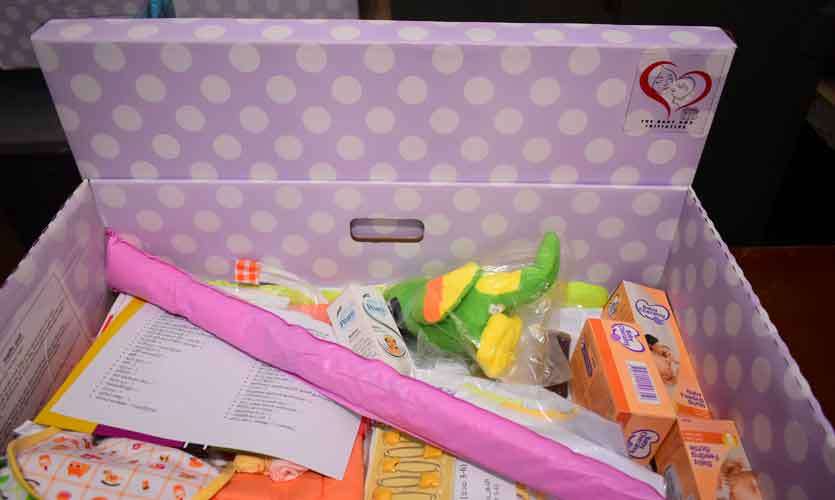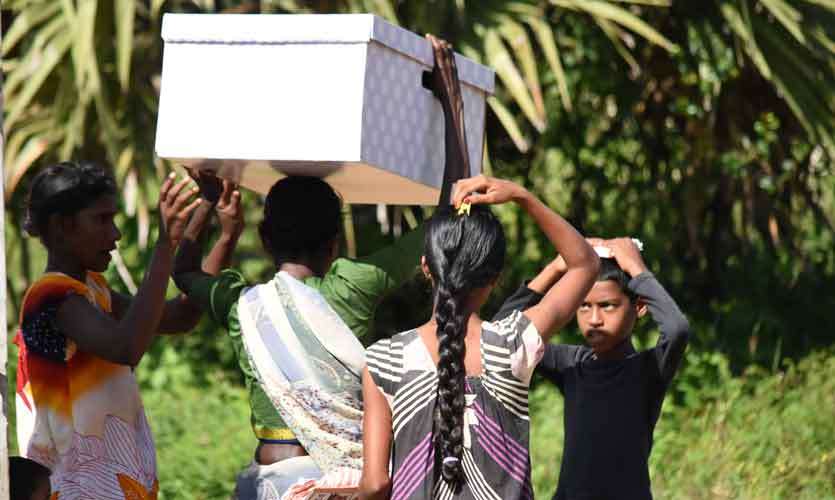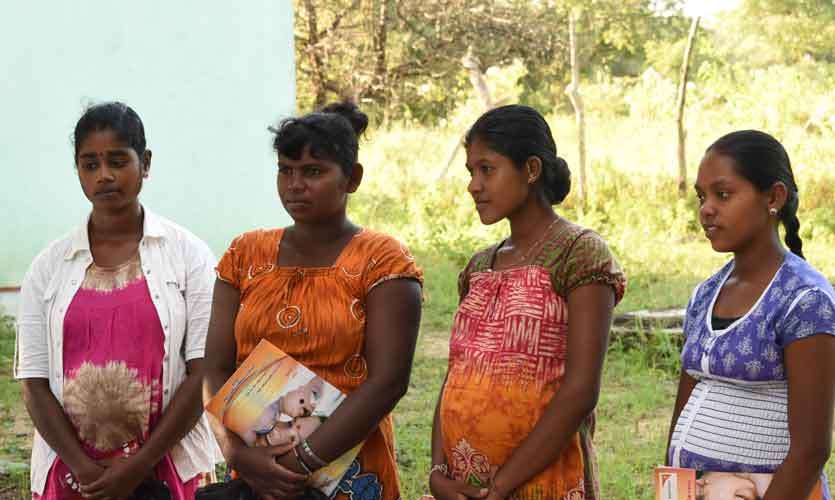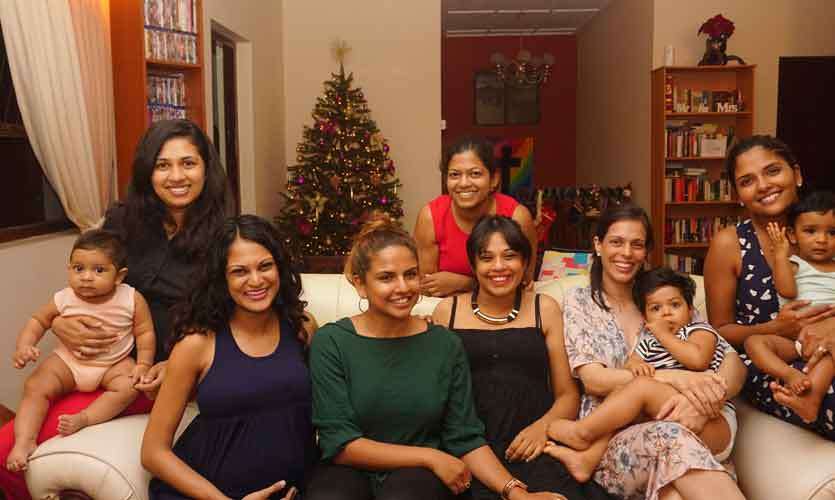
Dec 11 2019.
views 282
December is the season for giving and we can’t think of a better gift than getting involved with the Baby Box Initiative (BBI)! A project that pilot just last year, the BBI is led by a team of dynamic women easing the burden of expectant mothers in rural low-income communities by providing them with all baby essentials and care kits.

Expectant mothers in rural low-income communities often tend to have very limited resources at their disposal starting from a veryrestricted availability of baby essentials to a gap in information and education on pregnancy and post-natal life.
Bu the BBI team isall set to change this status quo and they’ve already made a huge impact last year by distributing Baby Boxes to 100 expectant mothers in 4 rural communities, greatly easing the costs the mothers were set to bear.
After a successful pilot project they are set to carry on the project for the second consecutive year in January 2020 with bigger and better targets set in sight. We talk to the team behind BBI for details about this year’s project;
1. What’s the Baby Box Project?
-The Baby Box is essentially a simple cardboard box that doubles up as a safe place for an infant to sleep. The concept originated in Finland in the 1930s, where economically challenged parents were given a baby box free of charge. Today, ‘baby box programmes’ are carried out in many countries by governments, hospitals and charitable organizations etc. In Scotland, for example, every pregnant woman is entitled to receive a baby box. The aim of such initiatives is to ensure that every baby receives a safe and equal start in life.
We started a similar project in 2018,where the Baby Box Team distributed 100 baby boxesin Mattakkuliya, Thoppigala, Kaivelli and Embilipitiya, to expectant mothers identified as being particularly needy by their local clinics. In addition to items for new born babies, the boxes also included nutritional supplements for the mothers.

2. What founded the idea of putting together a Baby Box?
- The idea to start this project in Sri Lanka was first sparked through a conversation that one of the Baby Box Team members had with her Scottish friend, about baby box programmes carried out in Scotland, and the benefits of baby boxes in general. That simple conversation in 2018 gave birth to a vision for pregnant women in rural Sri Lanka, who, due to the realities that come with poverty, struggle to provide for their unborn infants. This idea was shared among friends – who soon caught the same vision.
As a team, we studied the information and research that was available to us on the internet, regarding baby boxes. We learned of evidence for it being a safe space to sleep for babies up to 6 months of age. We then approached midwives and local medical clinics to expand our understanding of the needs ofpregnant women, infants, and families, especially in low-income communities. We sought advice from them regarding the items that should be included in the baby boxes, and gained an understanding of how to proceed. Next, we spoke to box manufacturers and mattress experts, to ensure that the final product we distribute would be practical, durable and safe. Finally, we came up with a simple proposal and reached out to family, friends and co-workers to help us raise funds.

3. Why is a Baby Box Initiative so important for people from low income backgrounds?
- We consider it important because it is tailored to meet their specific needs, and will therefore potentially bring them some much needed financial relief.
The particular needs of communities vary from location to location, but in general, many of the parents we reached out to under our pilot project struggled to provide for the basic comfort and care of their newborns. When we visited some of the families in Kaiveli, we saw infants wrapped in used sarongs. In the slums of Mattakkuliya, the entire family, including new born babies, slept on the floor, on mats, and most without a mosquito net. Many did not have nappies. Pregnant mothers who live in the jungles of Thoppigala did not have basic necessities for themselves, let alone their babies. They walked barefoot. Naturally, one of the things they asked us for were slippers! Although we provided them with sanitary napkins, they did not have undergarments, to enable them to use such things. It was heartbreaking to think how much we take for granted.
Apart from bringing financial relief, the Baby Box Initiative also aims to provide a sense of community to women who may otherwise feel isolated in their circumstances. This is very important to us, as a team.

5. So what does the BBP 2020 project hold?
Essentially the same items that were contained in the 2018 baby box will be contained in the ‘Baby Box Bag’ this year. The Baby Box Bag will be a durable bag that can be carried easily when travelling, and used on a long-term basis. The bag will hold items like carry quilts, baby clothes, baby sanitary products, mosquito nets and mats, blankets and nappies among others that are reusable and long lasting.
In addition to the Baby Box Bag, we will be providing a Hospital Bag, whichwill contain items to cater to the wellbeing and dignity of the mothers themselves, particularly those faced with extreme poverty and who are single / the main source of income for their families.
We also really wantedto include educational programmes. This was added mainly on the request of the midwives we worked with in the pilot project. These programmes will encompass free workshops and discussions to educate and train expectant parents on how to foster a safe and loving home environment for their children.
6. Who would benefit from the BBP in 2020?
- So far we are looking at reaching the same communities we reached in 2018, with the addition of one new community in Peliyagoda. We leave it to the local clinics to select the specific persons to benefit from our projects.As at date, 50 pregnant women have been identified from the slums of Mattakuliya, 40 from Peliyagoda, 25 from Embilipitiya, 35 from Thirrukkovil,52 fromThoppigala and 23 from Colombo.
By: Panchali Illankoon
Feel like getting involved?
Get in touch with the team and ask for information about how you can help!([email protected] /0760065315).
0 Comments